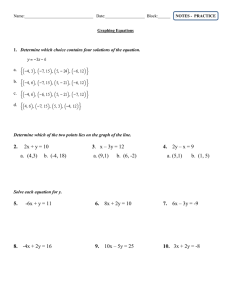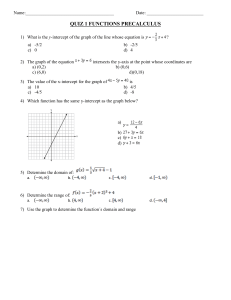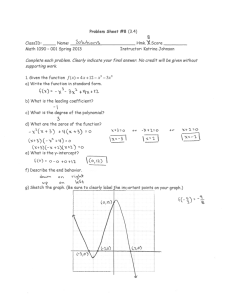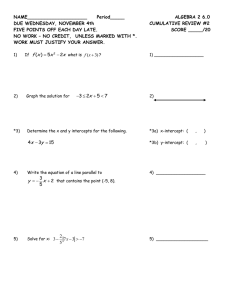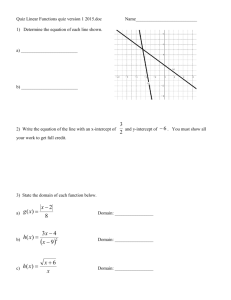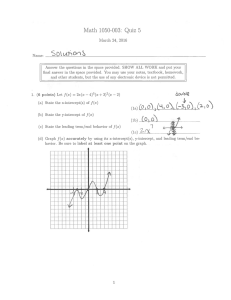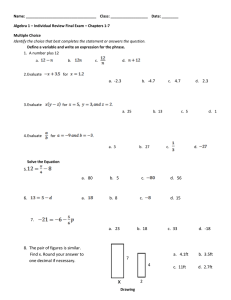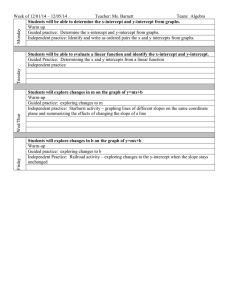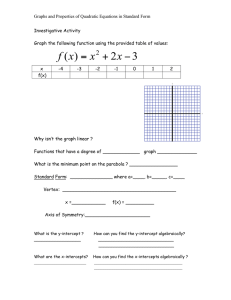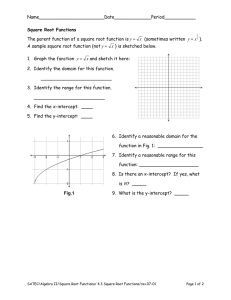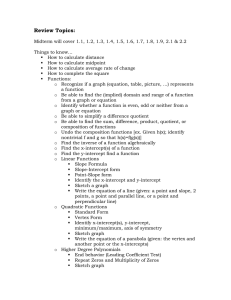Math 2 Name Lesson 7-1: Functions, Domain & Range Date
advertisement
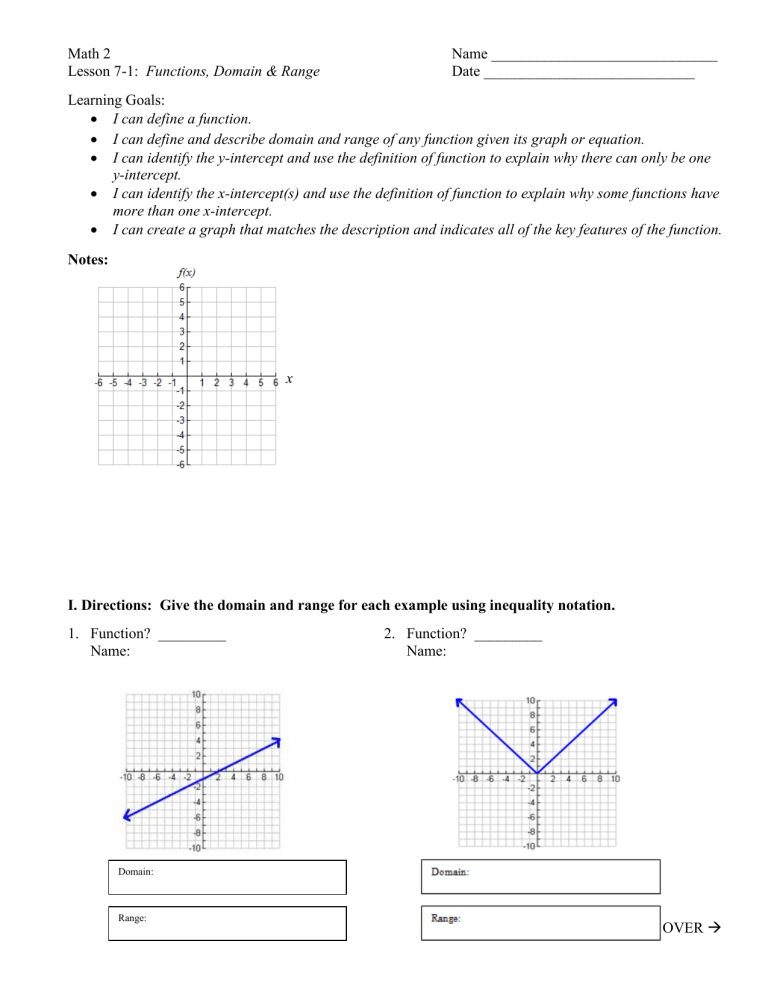
Math 2 Lesson 7-1: Functions, Domain & Range Name ______________________________ Date ____________________________ Learning Goals: I can define a function. I can define and describe domain and range of any function given its graph or equation. I can identify the y-intercept and use the definition of function to explain why there can only be one y-intercept. I can identify the x-intercept(s) and use the definition of function to explain why some functions have more than one x-intercept. I can create a graph that matches the description and indicates all of the key features of the function. Notes: x I. Directions: Give the domain and range for each example using inequality notation. 1. Function? _________ Name: 2. Function? _________ Name: Domain: Range: OVER Page 2 3. Function? _________ Name: 4. Function? _________ Name: 5. Function? _________ Name: 6. Function? _________ Name: Page 3 7. Function? _________ Name: 8. Function? _________ Name: 9. Function? _________ Name: 10. Function? _________ Name: OVER Page 4 11. Function? _________ Name: 12. Function? _________ Name: 13. Function? _________ Name: 14. Function? _________ Name: Page 5 II. Use the equations or their graphs to evaluate the following. 1. Graph #6 f (5) = ________ 2. Graph #8 3. Graph #9 g (-9) = ________ 5. For Graph #5, if j (x) = -3, x = _______. a (-4) = ________ 4. Graph #12 h(0) = ________ 6. For Graph #13, if b(x) = 1, x = _______. 7. In problems 1 through 6, which one represented the function’s x-intercept? _________ 8. In problems 1 through 6, which one represented the function’s y-intercept? _________ III. Answer the questions below about the functions in part I. 1. Give the name(s) of the function(s) which appear to be increasing over the entire domain. How do you know? 2. Give the name(s) of the function(s) which appear to be decreasing over the entire domain. How do you know? 3. Give the name(s) of the function(s) that appear to have a minimum or maximum value. IV. Sketch possible graphs of functions given the following conditions: 1. x-intercepts at (-5, 0) and (4, 0) y-intercept at (0, -3.5) minimum value when x = -2.5 2. x f(0) = 2.25 f(-6) = 5 decreasing over entire domain x
